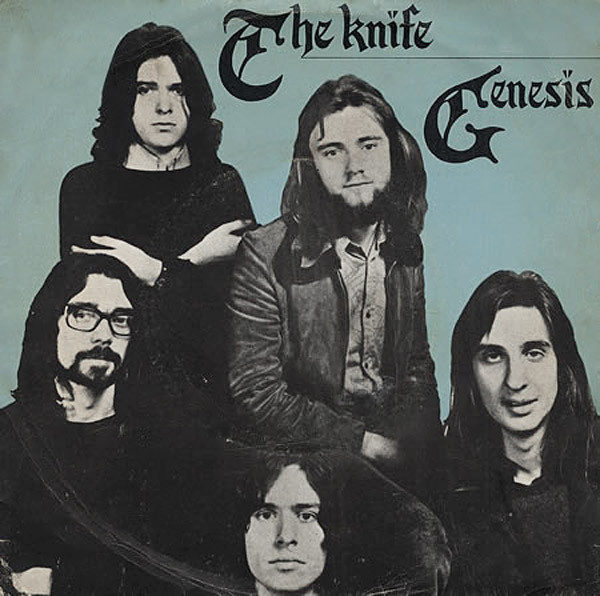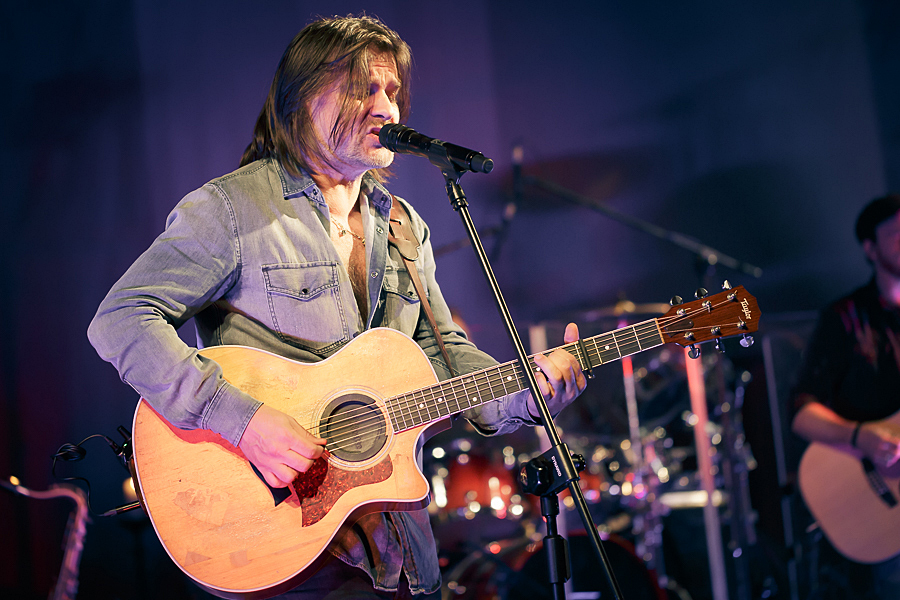On 4 August 1970, Phil Collins officially became the drummer for Genesis. Here’s the story of how he landed the gig, and how it all began with a swim.
‘Looking for someone…’
By the summer of 1970, Genesis had just suffered what they later described as the biggest loss in their career: guitarist and founding member Anthony Phillips had decided to leave the band. Though the music on Trespass was complete, Ant’s struggle with stage fright made it impossible for him to continue performing. With his departure, Genesis (then a quartet) decided it was time to look for a new guitarist and, crucially, a new drummer.
Up until that point, they had gone through three different drummers. So, they placed an anonymous ad in Melody Maker, the go-to magazine for musicians in the UK:
‘TONY STRATTON SMITH is looking for 12-STRING GUITARIST who can also play lead; plus DRUMMER sensitive to acoustic music.’
One aspiring young drummer in London happened to see it: Phil Collins.
Answering the call
Phil had previously played in a band called Flaming Youth (originally named Hickory) and released one album with them. But the band never took off, rarely performed live, and left Phil frustrated and eager for something new. Determined to pursue a career as a professional drummer, he began scanning Melody Maker for new opportunities.
He recognised the name of the band’s manager, Tony Stratton-Smith, from his earlier music ventures and knew he could often be found at the bar in London’s Marquee Club. So Phil turned up and asked directly if he could audition for the band. Stratton-Smith responded that the band insisted on auditions for everyone. The band, he revealed, was Genesis. Phil had seen their name in the back pages of Melody Maker listings, but didn’t know much about their music.
At the time, Genesis was a trio: Tony Banks on keyboards, Peter Gabriel on vocals, and Mike Rutherford on guitar and bass. Phil recalls calling them and speaking with Peter Gabriel:
‘He said ‘Yes, uhm, come down to my parents’ house in Chobham.”
Peter was intrigued when Phil mentioned he had played with George Harrison. (Phil would later admit that all he had done was play percussion on one of George’s sessions, but the name-drop got his foot in the door.)
The audition (and the swimming pool)
Phil and his friend, guitarist Ronnie Caryl, drove out to the Gabriels’ countryside home near Woking on a hot summer day. The house had a pool and was surrounded by fields. Ronnie was hoping to join the band too.
Phil remembers seeing Mike Rutherford in what looked like a crushed velvet dressing gown and slippers. (Mike insists it was just a swimsuit and robe – they were by the pool, after all.) Tony Banks barely spoke and struck Phil as a ‘tortured artist.’ Peter Gabriel seemed eccentric.
They’d arrived early, and there were still a few drummers ahead of Phil. While waiting, they were invited to take a swim.
‘Being there early and having two or three drummers ahead of me, I didn’t know what the conversation was, what they were saying to each other, but I could hear the music. The same piece of music being played two or three times and the same piece of music being played with the next guy two or three times. So by the time I came up to play, I kind of felt I knew what I was doing.’
The band played pieces that showed the different styles Genesis was experimenting with: delicate passages, heavier sections, and more experimental parts. Phil listened to the Trespass album in the living room and was struck by the harmonies that reminded him of Crosby, Stills & Nash. He later said he would’ve joined them even if he hadn’t liked the music: he simply needed a job.
Thanks to the sneak preview while in the pool, Phil nailed the audition.
Peter Gabriel later said:
‘Just the way he sat down on the stool, I knew he was going to be good. Some people have this sort of confidence about what they do.’
After they left, Ronnie thought Phil had failed the audition but that he had done great. As we know, it turned out the other way around. Phil got the job. Ronnie didn’t, but he did end up playing in Phil’s solo band years later.
Fitting into the band
Phil, then just 19, joined Genesis in August 1970. The band took a short holiday before getting back together to rehearse in a space called Farnham Maltings, which Mike’s father helped them rent. Over six weeks, they began working on what would become Nursery Cryme.
Phil immediately noticed the cultural gap between him and the others. He was a working-class lad with a grammar and stage school background. The others were Charterhouse-educated public school boys. He recalls seeing Tony Banks and thinking he looked like Beethoven with his long hair.
Peter Gabriel, meanwhile, had a bass drum next to his mic stand, which he would bang on spontaneously, even out of rhythm. This annoyed Phil.
The atmosphere in the band was intense. Tensions ran high, especially between Peter and Tony.
‘In the middle of a conversation, suddenly someone would get up and slam a guitar on the floor and walk out‘, Phil remembers. ‘I thought ‘What?’ Someone had said something to upset somebody else. Two hours later this person would come back and we’d start playing again. Suddenly there’d be ‘Oh, f*** you’ and somebody else walked out. It was very highly strung.’
Peter Gabriel adds:
‘I would often be at loggerheads with Tony Banks, and Phil would always sit on the fence, he would never want to come into the argument.’
Phil’s different background influenced more than just the sound. It affected the group’s dynamics. He realised early on that his role included defusing arguments with humour, a skill that came naturally from his time at stage school.
Mike Rutherford recalls:
‘Apart from the humour, he’s got a very laid-back approach. He was very serious about his work, but had a very laid-back approach to life, which I think helped us a little bit.‘
Phil may have thought he was joining a band that held rehearsals by a pool in the countryside. In reality, he’d just signed up for years of rough touring in a van. But the chemistry was right and the rest is history.
Title photo: Genesis – ‘The Knife’ (single cover).
Sources
Phil Collins – A Life Less Ordinary (documentary, 2002)
Genesis – Sum of the Parts (documentary, 2014)
Philipp Röttgers – Two eras of Genesis? The development of a rock band (book, 2015)



